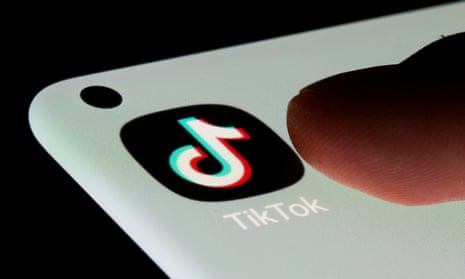New Zealand MPs have been warned off using TikTok, with concerns data could be accessed by the Chinese government.
Last week, House speaker Trevor Mallard sent out a warning to all parties that MPs should not use the app on their parliamentary phones and devices.
Doing so “could pose a security risk where data on your devices could be accessed by ByteDance (the owner of TikTok) and the Chinese government,” the email said.
While the message from the parliamentary service said it “strongly recommends” deleting the app entirely, if MPs did choose to have it, they should check settings to “make sure you are comfortable with the permissions you have granted” and “remove its ability to access your location”.
It recommended a BuzzFeed article from June, which reported that non-public US user data was being accessed abroad.
The Guardian has viewed the memo, which was first reported by Stuff.
So far, only a few New Zealand politicians have an official TikTok presence, although the app has become increasingly popular with those running for office in Australia.
Māori party and its leader, Debbie Ngarewa-Packer, have gathered a following for posting politics-themed takes on TikTok trends – such as a coordinated dance captioned “On our way to argue with some white supremacists”.
The right-wing libertarian Act party also has a substantial following, posting regular videos of leader David Seymour reading fanmail and eating fish and chips.
Act spokesperson Rachel Morton said the party was “aware of concerns from parliamentary service. That’s why we don’t post from a parliamentary service device.”
Concerns over TikTok’s security and the company’s closeness to the Chinese state have made it a frequent target of sanctions, bans and warnings.
In 2020, then-president Donald Trump made an executive order to ban TikTok, citing security concerns and its closeness to the Chinese government, while both the Democratic and Republican national conventions warned staff not to use the app.
Joe Biden announced he would revoke those orders in 2021, but continued a US national security review of TikTok.
In June this year, after BuzzFeed’s report, a number of US senators began a renewed push to regulate the app, saying: “We need answers from TikTok immediately on its policy of sharing Americans’ private information with the CCP.”
TikTok, which has over 1 billion global users, has denied posing national security concerns.
This is not the first time New Zealand lawmakers have been warned against the app – MPs were also advised to delete it in 2020. Some New Zealand officials – such as the police – are already banned from using TikTok on work devices.
The Guardian has approached TikTok and Te Pāti Māori for comment.
